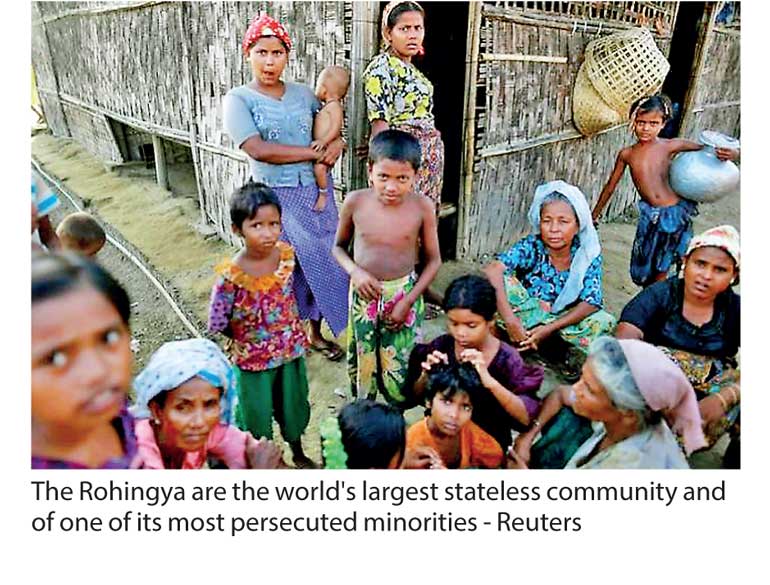Sunday Feb 22, 2026
Sunday Feb 22, 2026
Friday, 22 December 2017 00:00 - - {{hitsCtrl.values.hits}}
 Reuters: Attacks by Rohingya Muslim insurgents on the Myanmar security forces in Rakhine State triggered a response by the army and Buddhist vigilantes so brutal a senior U.N. official denounced it as a textbook example of ethnic cleansing.
Reuters: Attacks by Rohingya Muslim insurgents on the Myanmar security forces in Rakhine State triggered a response by the army and Buddhist vigilantes so brutal a senior U.N. official denounced it as a textbook example of ethnic cleansing.
Days, weeks and months after the Aug. 25 violence, more than 600,000 Rohingya fled to Muslim Bangladesh, trekking over mountains and through forests and rice fields inundated by monsoon rain.
Many of the refugees were traumatised, exhausted and hungry, some wounded by bullets, knives or clubs, many with burns. Many women said they had been raped.
All of the refugees brought accounts of a campaign of murderous violence and arson by the Myanmar security forces and Buddhist civilians that they believed was aimed at driving them out of the country.
Mostly Buddhist Myanmar denies the accusations.
Myanmar says the rebels responsible for the Aug. 25 attacks on about 30 security posts and an army camp - the Arakan Rohingya Salvation Army - are terrorists and it is they who unleashed most of the violence and arson that reduced hundreds of Rohingya villages nestled in emerald-green rice fields to ash.
The Rohingya have long faced discrimination and repression in Rakhine State where bad blood with ethnic Rakhine Buddhists, stemming from violence by both sides, goes back generations.
Rohingya are not regarded as an indigenous ethnic minority in Myanmar - the government even refuses to recognise the term “Rohingya”, instead labelling them illegal immigrants from Bangladesh. Most have been denied citizenship under a law that links nationality to ethnicity.